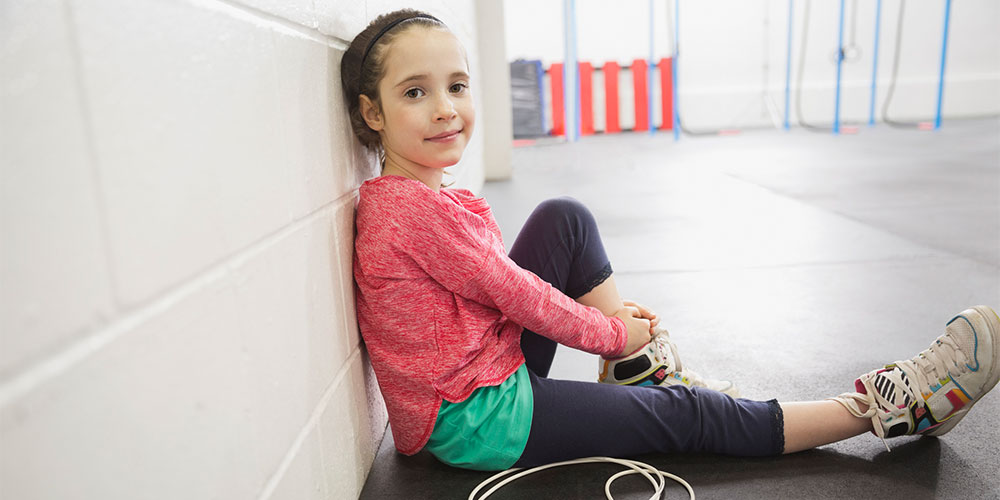Physical education teachers—it’s hard to express just how vital they are in improving young peoples’ lives. To get concrete, their classroom serves as a launching pad for a longer, happier, more productive, and more meaningful life. And not only in light of the body’s health. The truth is, physical education also involves enhancing mental health.
Almost half of America’s students experience some form of cognitive health struggle, ranging from mild sadness to suicidal ideation. Given the positive impact their curriculum has on emotional well-being, no doubt physical education teachers stand on the frontlines of this crisis.
Students and Mental Health: A Look at the Numbers
A recent report from the Centers for Disease Prevention and Control has measured student mental health factors over a 10-year period. In short, their findings are beyond sobering. In 2011, some 28% of students reported experiencing feelings of helplessness and despair. Ten years later, in 2021, that already staggering percentage rose to 42%. Looking solely at LGBTQ+ students, that number shoots up to 70%.
Though correlation does not equal causation, it would be foolish not to look into the current statistics regarding students’ physical health. How do these data sets compare?
For kids ages 10 to 17, obesity rates clock in at 17%. To that end, the numbers don’t shift much as kids get older. Nationally, 16% of high schoolers fall under the same category. At a glance, these are not as alarming as other figures, but when you factor in the impact of poverty on physical health, the situation becomes more dire. When these children live in impoverished households, which might indicate less access to nutritious foods, the statistic rises to 25%.
It’s not at all unlikely that physical health issues play a major role in the mental wellness crisis our country faces.
Exercise and Mental Health
No matter what PE lesson plans you design for that day, the benefits of exercise remain the centerpiece. It’s true that running on the treadmill isn’t going to reverse accumulated trauma. Hiking on the weekends won’t eliminate anxiety. But rest assured that exercise plays a significant role in our mental wellness.
When you teach exercise techniques, run drills, and conduct fun and physical games, you help your kids gain the following benefits.
Stress Relief
When it comes to mental health, everyday life can bear significant weight, even for privileged people who have a normal and expected amount of stress. When expectations pile up, feelings of overwhelm arise, which can chip away at a person’s good disposition. Physical education teachers help remove this albatross through an exercise curriculum that focuses on releasing negative emotions.
The feeling of Accomplishment and Self-Worth
Whether it’s high anxiety or low feelings of depression, mental unwellness takes many forms and happens at different intervals. One uniting component might be the intrusive and untrue feelings of worthlessness that some students feel. Feelings of accomplishment can go a long way toward countering these negative emotions. When we achieve something, our self-worth meter rises, and there are many opportunities to accomplish this in PE class. The accolades need not be an astounding feat. Even the smallest accomplishments are worthy of merit.
Increased Focus and Motivation
Racing thoughts and cluttered minds often lead to emotional burnout. Young people have a unique set of stressors, and many worry about their futures. In this state, it’s not uncommon for the elementary and teenage brain to become overburdened. And that leads to giving up. Exercise as it happens in PE class is known to increase focus and motivation, setting the framework for a clarity that hopefully can banish heavy emotions.
Creating Fun and Endorphins
To banish darkness requires light. It sounds a bit cheesy, but it’s nevertheless true. Though fun itself can’t erase mental health struggles, the endorphins we feel while having a good time remind us that the whole life thing is worth the energy, even during our toughest days.
Nutrition and Mental Health
It sounds farfetched at first, but it’s a fact that serotonin manifests in the stomach. A recent study from Harvard Medical School explains it this way: “Since about 95% of your serotonin is produced in your gastrointestinal tract, and your gastrointestinal tract is lined with a hundred million nerve cells, or neurons, it makes sense that the inner workings of your digestive system don’t just help you digest food, but also guide your emotions.”
This brings new meaning to the term “happy tummy.” But really, when you teach good nutrition habits, you’re helping to make the following a reality.
Improved Bodily Constitution
As stated above, our diets impact our bodies as well as our brains, and not just in matters of academic performance. To get specific, the food we eat creates a gut environment and, ergo, manipulates the function of the brain and mood. Introducing good sustenance into our system impacts the way we feel each day. And that is inextricably linked to better mental health.
Increased Energy
If it reaches its lowest point, depression leads to a lack of function, with many people having trouble even getting out of bed. While no fruit or vegetable can reverse this brutal mental health situation, it’s important to maintain a certain level of energy so that kids feel productive and worthwhile. Only a good diet can accomplish that.
Introducing Foreign Helpers
Our bodies do not create Omega-3 fatty acids by themselves, but we can introduce them into our ecosystem. To that end, though it’s been vilified in the past, our brains require fat to function. It’s a matter of whether we choose healthy, productive fats that improve brain function.






